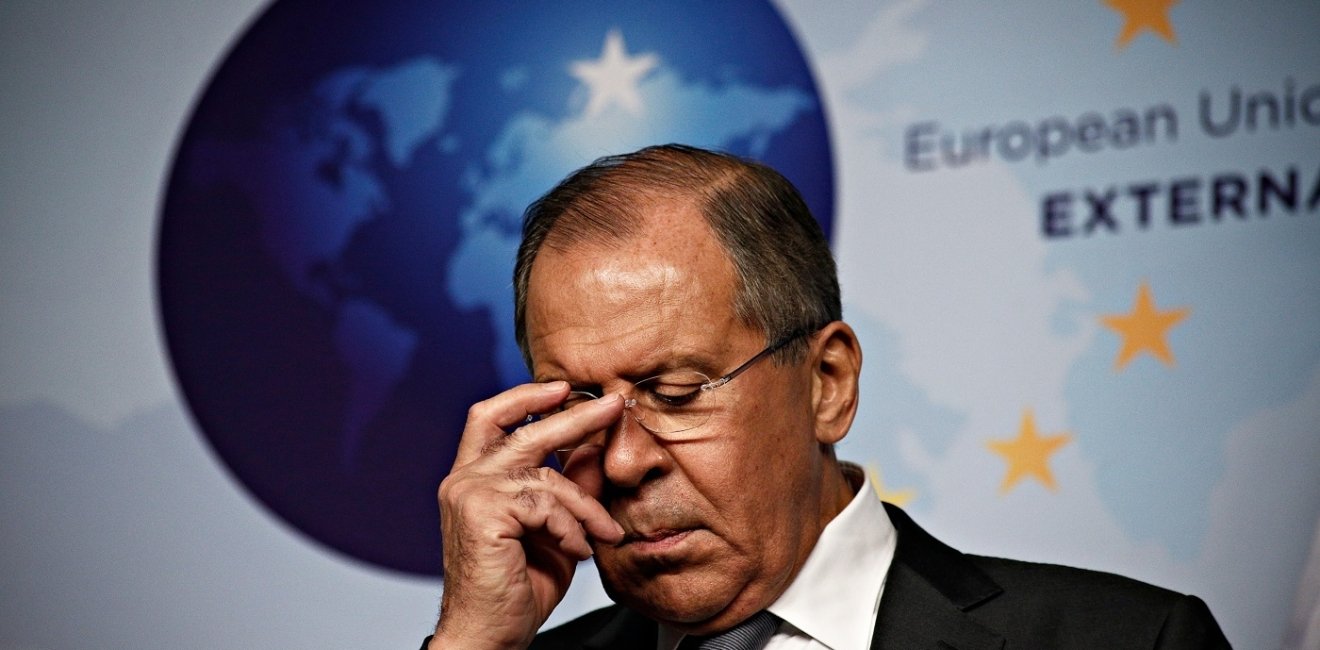
A blog of the Kennan Institute
BY MIKHAIL FISHMAN
On June 27, a Russian missile attack on a shopping center in Kremenchuk, Ukraine, left twenty-one civilians dead and many injured. First, Russia’s deputy ambassador to the UN, Dmitry Polyansky, suggested the attack was staged. The next day, Russia’s Defense Ministry claimed Russian forces had attacked a nearby arms and munitions depot and that the fire had spread to the shopping center, which, according to the MoD, was nonfunctioning at the time.
Russia’s foreign minister, Sergey Lavrov, put out the same story—the shopping center was closed and empty—despite abundant evidence to the contrary: reporters on the ground interviewed visitors and employees who were inside the building at the time of the attack; survivors were taken to hospitals and shared their accounts; even the state tax service of Ukraine presented proof that the cash registers at the shopping center were operational that day and took in almost 3 million hryvnias. Finally, Vladimir Putin casually dismissed the suggestion that civilians might have died during the attack: “The Russian army does not strike at civilian targets. There is no need.”
This was a striking example, if just one out of infinitely many, of how the Kremlin counters an obvious truth when it does not serve its interests. It’s always the same. No matter what amount of evidence is presented and how meticulous the eventual court ruling is—such as the district court in the Hague taking years to conclude the trial over the downing of Flight MH17 by a Russian BUK missile launched over Donbas in July 2014—it is dismissed by Moscow as insufficient. No matter how scrupulous and up to standard the analysis of Alexei Navalny’s blood samples by experts from the Organization for the Prohibition of Chemical Weapons, which left no doubt he was poisoned with a nerve agent in August 2020, this expertise is rejected as biased and politically motivated. No matter how thoroughly the crimes committed by Russia’s military in Ukrainian cities and towns, such as Bucha, Irpen, and Mariupol, are documented, the Kremlin has already cast the future trial as invalid. “Who believes they can bring others to justice while being immune to any justice themselves?” argued Dmitry Medvedev, while characterizing the United States as a global evil of Hitlerian caliber.
The response is always the same, and it is even couched in the exact same words, as if Putin’s reactions were generated by Kremlin-developed software. “We know who was responsible, who prepared this provocation, using what means, and we know who the people involved were,” Putin told UN Secretary-General António Guterres in regard to events in Bucha. “I know everything, I have been briefed on who was bankrolling it, who was preparing it, everything”: in 2005, these were the words with which Putin dismissed the allegations that Viktor Yanukovych’s presidential election victory in 2004 was rigged. In November 2004, widespread perception that the election had been rigged in favor of Yanukovych triggered the Orange Revolution, and Viktor Yushchenko’s campaign presented ample evidence of vote fraud.
In 2004, Putin believed the United States had “robbed” him of Ukraine. Since 2014, and even more vigorously after he started the invasion of Ukraine in February 2022, Putin has accused the United States of orchestrating “an unconstitutional armed coup”—that is, political robbery —in Kyiv in 2014, during the Revolution of Dignity.
This is not true. As long as the Ukrainians were protesting on the streets that dramatic winter, Western negotiators tried to cool their ardor, to no avail: what started on Kyiv’s Maidan square essentially as a student protest in late November 2013 transformed in less than three months into a full-scale civilian uprising. But in Putin’s mind, people do not have free will: they exist not to change the course of history but to be governed. Yet even when the Kremlin officials suggest they know what really happened, they are never specific, and often come up with different and contradictory answers. The story they tell is never entirely told.
Almost religiously, the truth is declared unachievable and elusive: there is no argument or evidence that would work as rock-solid proof of anything, and there is no authority in this world powerful or legitimate enough to establish and validate any visible reality as authentic. This is a weapon of both defense and attack. Putin insists the goal of his “special military operation has never changed,” but which one is it among the dozen or so goals that Russian propaganda or even Putin personally have pointed to? Stopping NATO’s expansion to the east? Liberating the Donbas? Recovering Russian territory? The denazification of Ukraine?
Unclear military goals leave room for improvised expansion or retreat, but this is more than a wartime agenda. In the world of elusive and unverifiable truths and norms, the leadership is free of any obligations and need not follow any rules: laws, standards, and policies can be interpreted arbitrarily, according to current need. Historically, Putin has been an opportunist, someone who has always adapted concepts, views, and ideologies to his agenda. In fact, he is much more than that, having turned opportunism into state doctrine: total discretion is the only rule that Russia’s government applies to its actions. When the norm is elastic, those who have the power to interpret it hold absolute power. Putin’s adage, “Everything has to be in accordance with the law”—so notorious it has become a joke on Russian independent media—means exactly the opposite. His power has no limits.
Attempts to neglect rules and norms—and the truth—trace back to pre-Putin times in Russian politics. Putin’s predecessors in the Kremlin neither sought wars nor planned to transform Russia into an autocracy. Instead, they found themselves constantly fighting for survival as Russia’s political life turned into a life-or-death struggle. And as soon as they navigated the political world in an extremely hostile environment, their ability to expand their powers—and to stretch the norms to fit their needs—was limited by ruthless political competition. But this started to change dramatically when Putin came to power and eventually took Russia’s undeveloped system of checks and balances under control.
What is ruling? Even in a democracy, some part of governing is invisible to the general public. Every political institution has a back office: clerks filling out papers, aides providing counsel, agents handling negotiations. (Not to mention the special services, which are much less open to public control.) What is corruption? Where is the line between consulting and advising, between advising and unlawful intervention? What is abuse of power? Political competition—and democratic tradition—constantly push these issues into the public limelight.
Just as blurring the line between asking for a favor and coercion characterizes Mafia operations, in an unchecked autocracy the gray zone between law and lawlessness, between justice and arbitrariness, between truth and lies expands indefinitely. Rules erode. The autonomy of the justice system degrades into rule by telephone, freedom of the press turns into censorship, members of parliament become helpless executors of the government’s will, and the polity transforms into disenfranchised subjects of the crown. Over time, human rights, the rule of law, and democratic procedures, ideals still falsely adorning the façade of the Russian governmental edifice, are stripped from public life, superseded by violence and despotism. To this process there is no natural limit.
The opinions expressed in this article are those solely of the author and do not reflect the views of the Kennan Institute.
Author
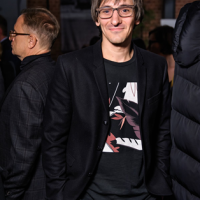
Russian Journalist and Filmmaker

Kennan Institute
The Kennan Institute is the premier US center for advanced research on Eurasia and the oldest and largest regional program at the Woodrow Wilson International Center for Scholars. The Kennan Institute is committed to improving American understanding of Russia, Ukraine, Central Asia, the South Caucasus, and the surrounding region though research and exchange. Read more

Explore More in The Russia File
Browse The Russia File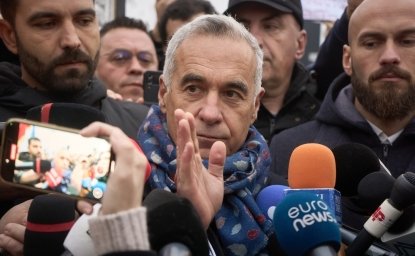
In Search of Russia’s Digital Trace in Romania’s Political Crisis
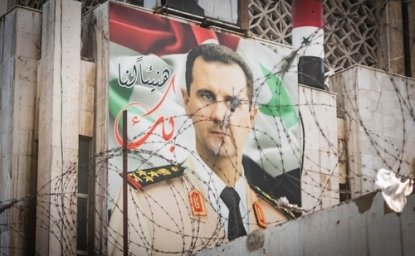
With Syria’s Collapse Russia’s Regional Power Play Disintegrates
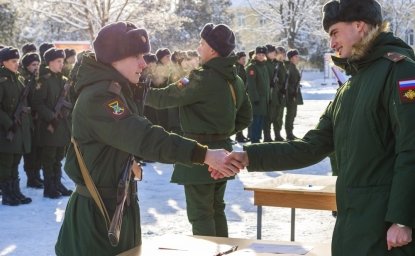
Putin's Strategy Tests Europe's Defense Limits

